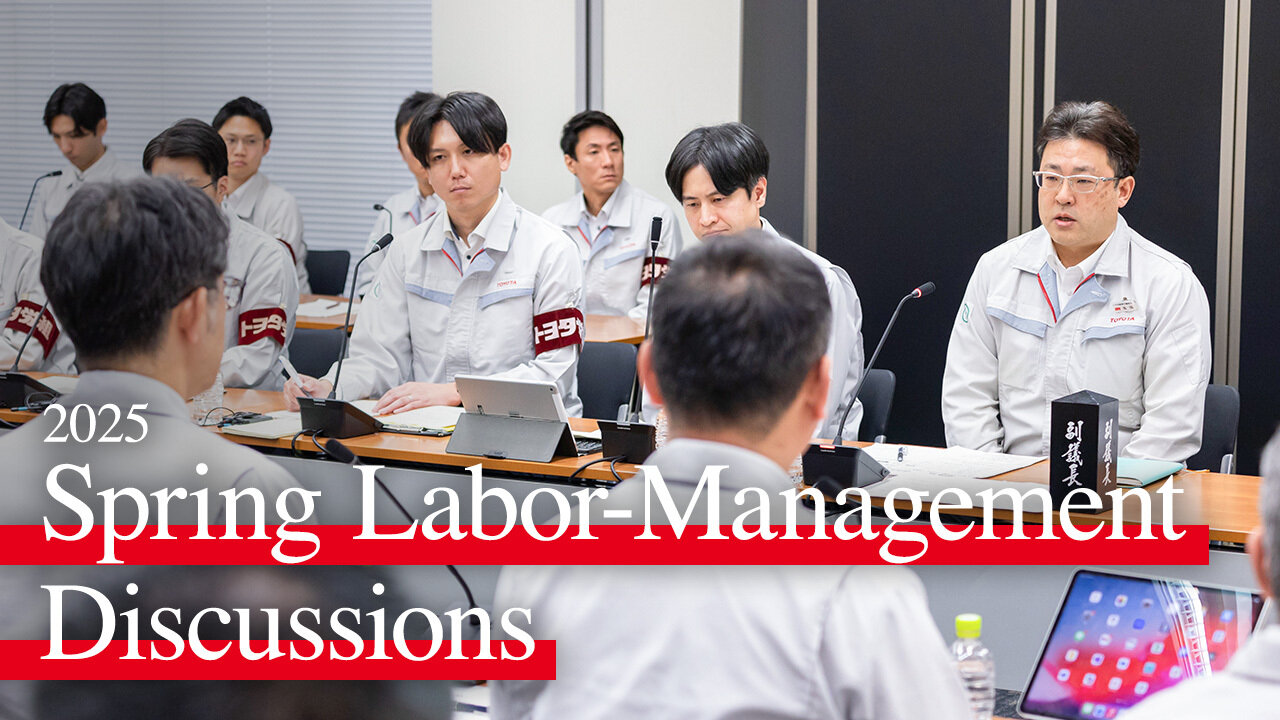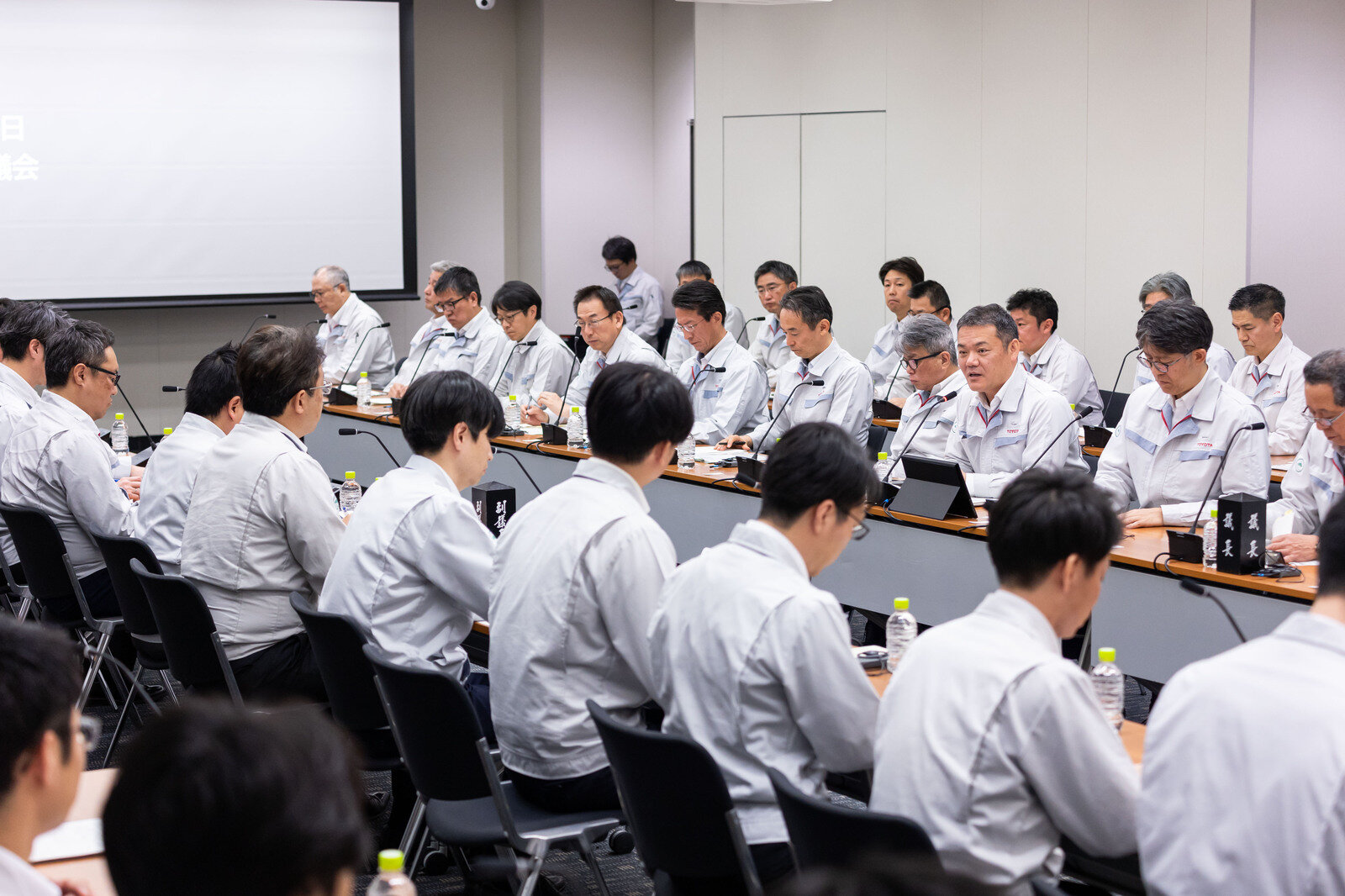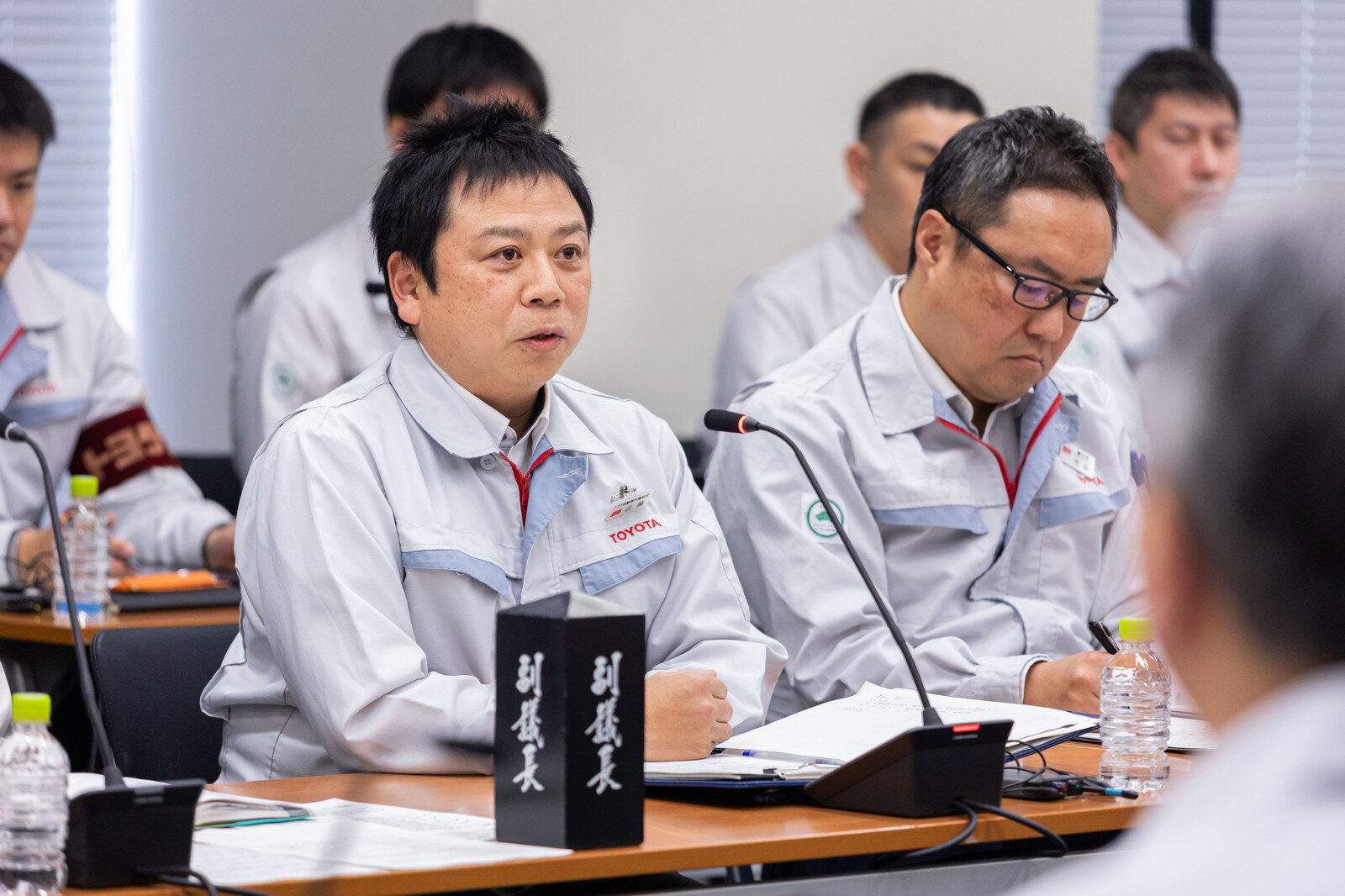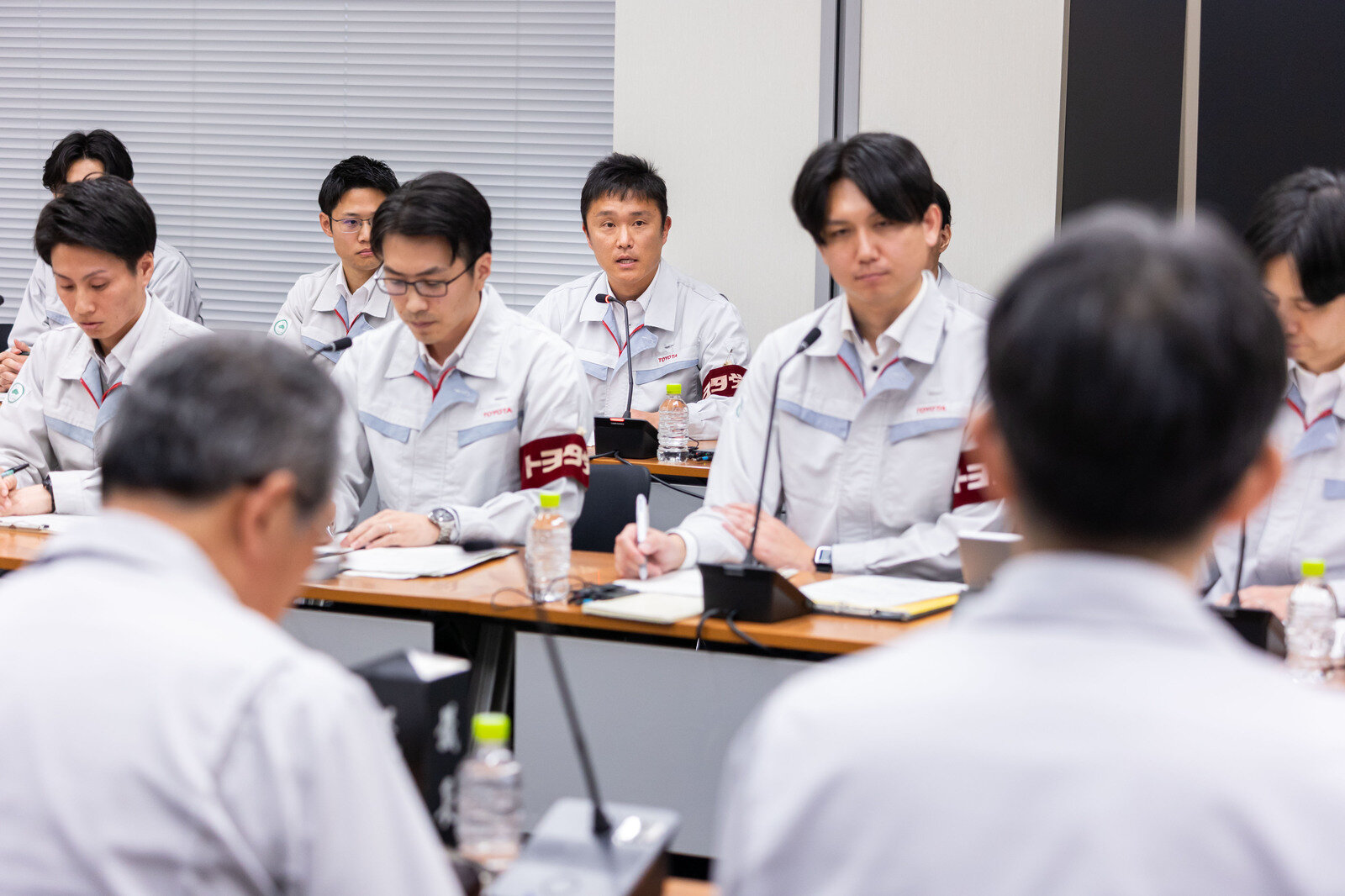
The second round of labor-management discussions--unusually held at the group level--focused on instilling a "sense of ownership." In an era of greater job choice, with work styles and personnel becoming ever more diverse, President Koji Sato spoke about the meaning of "uniformity."

“We may be wrong in our perception of what should be made uniform."
As he made this remark near the end of the discussions, President Koji Sato did not shift his gaze from the union representatives. His words, however, were also directed at Toyota’s chief officers and other leaders.
In an unprecedented move, the year’s second round of labor-management discussions were held at the workplace level, within individual groups and companies. One week later, a third round of talks took place at Toyota’s head office on March 5.
This session returned to the traditional format, bringing union branch leaders and other representatives together with the company’s executive team.

A healthy sense of urgency
Before we report on this third labor-management discussion, let us recap the aims of the previous round, held within workplace units.
Prior to the talks, Toyota Times interviewed President Sato and General Administration & Human Resources Group Chief Officer Takanori Azuma. Our conversation included the following comments from the president:
President Sato
No matter how well we get both sides on the same page in our labor-management discussions, we haven’t been able to instill a sense of ownership across the company as a whole.
The union leaders also noted that, looking at individual members, this mindset is still inconsistent.
This year’s first round of discussions brought to mind the idea of a “healthy sense of urgency.” When results are good, we tend to overlook the risks lurking underfoot.
For that reason, I hope to achieve three things through these labor-management discussions: instill a healthy sense of urgency in all employees, enable everyone to possess a sense of ownership, and turn both of these facets into action.
During the interview, President Sato also called on teams to “decide whatever you like—take action.” Chief Officer Azuma said, “We all need to make a statement of action, not only to work hard but also as a commitment to the future.”
This second round of talks yielded decisions on over 100 actions, ranging from DX, information sharing, and other work practices to communication and HR development areas, such as securing time for dialogue.
A lack of commitment
Which brings us to round three. Looking back to the previous session, union and company representatives reported that staff had not internalized a sense of urgency, and did not see themselves as being in a position to make decisions.
“We need to assume responsibility for the company’s competitiveness,” remarked Frontier Research Center President Nobuhiko Koga. With both sides having identified the challenges and aligned their perspectives on the goals to be achieved, he noted, “We need to have more in-depth discussions about how we can accomplish this in a simple, streamlined way.”
Union Vice Chairman Daisuke Kondo responded by saying, “I came to realize that we lacked a sense of responsibility to speak hard truths for the future of the team and company, a commitment to making tough decisions, and passion for our work.”

Chief Officer Azuma, who held discussions within his own General Administration & Human Resources Group, also recognized that “we need to engage in decision-making talks throughout the year, culminating in the labor-management discussions.” He resolved to continue dialogues at the workplace level.
Expanding roles
At the same time, certain issues cannot be resolved within individual units. One such item brought up by union representatives was work practices and systems that do not reflect the expanding scope of operational and technical roles.
Operational, or “general,” staff are increasingly handling the same tasks as those in career-track office positions, such as product planning for related models or new business planning and implementation. The union members expressed concerns that, despite their individual responsibilities expanding, they were still being evaluated alongside other operational personnel.
“The role of operational personnel has expanded considerably,” sympathized Katsumi Akao, Deputy Chief Officer at the Japan Business Group. “Although these positions have Level 1 and various other qualifications, unless an employee changes track they will always be evaluated within the bounds of operational roles. From the management side, I think it’s important that we grasp the duties of individual workers and communicate closely with them.”

The union’s Vehicle Development branch relayed a sense of urgency in the software domain.
In order to prevail in this rapidly changing field, at the second round of talks, participants decided to establish systems for office personnel and technicians to work together on development. The goal is to reduce rework and information bottlenecks between processes to make development faster and more precise.
Some preliminary efforts are already underway, with technical staff being involved in upstream processes such as planning/conception and design tasks, where their ideas have been rapidly implemented and tested.
Despite the addition of new duties, however, employees have not been rewarded accordingly, leading some to say that the system is not fair or commensurate with effort. What’s more, since fields such as production preparation and manufacturing engineering operate within regular business hours (e.g. 8:30-17:30), getting involved in such work may actually lead to a pay decrease*
*Technical roles currently work on a rotating two-shift system. In addition to standard wages, they receive compensation based on shift times and night work; since these benefits do not apply to regular business hours, changing duties may result in decreased pay.
Production Group Chief Officer Takahiro Imura addressed the matter, saying, “The question of how we should reward technical staff is a pressing concern. I hope we can end up with a system that encourages people to work harder.”
Other issues were also raised, including support for mid-career hires in adjusting to their new workplaces, and redefining management and team member roles to harness the diverse strengths of individuals and maximize teamwork.

